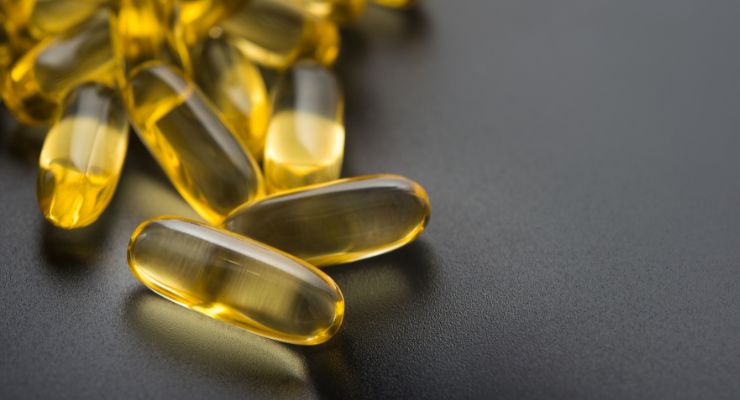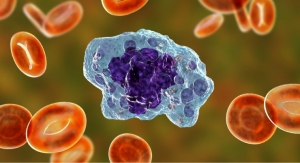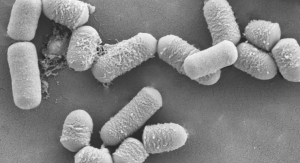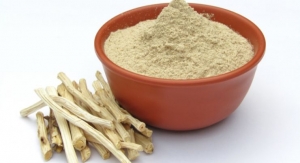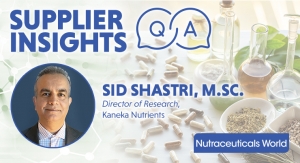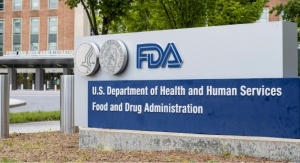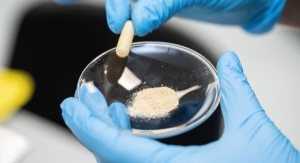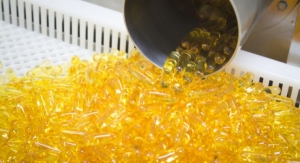03.01.23
Omega-3 status may serve as a predictor of COVID-19 severity, according to a large scale analysis of data from the UK Biobank prospective cohort study.
The study, published in the American Journal of Clinical Nutrition, compared the risk for three COVID-19 outcomes to baseline plasma DHA status: testing positive; hospitalization; and death.
DHA levels were measured by nuclear magnetic resonance spectroscopy but were converted to Omega-3 Index, which is the concentration of EPA and DHA in red blood cell membranes. The three outcomes, and covariates with EPA and DHA status, were available for a total of 110,584 subjects (hospitalization and death), along with 26,595 ever-tested subjects (positive COVID-19 PCR test result). Outcomes were assessed over a period spanning January 2020 and March 2021.
Subjects were broken into quintiles based on plasma DHA concentrations at baseline. Those in quintile 5 (with the highest Omega-3 Index levels) were 21% less likely to test positive than those in quintile 1. The risk for a positive test was 8% lower for each standard deviation increase in plasma DHA status.
Quintile 5 subjects were 26% less likely to be hospitalized than those in quintile 1, and risk for hospitalization was 11% lower per standard deviation increase in plasma DHA status.
For COVID-19 deaths, risk was monotonically lower thorugh quintile 4. Quintile 5 had a particularly attenuated risk reduction and became non-significant.
The range of DHA quintiles began at 3.5% (quintile 1) and went to 8% (quintile 5).
“These values comport well with the Omega-3 Index risk cut points [originally proposed in 2004 for death from cardiovascular diseases] of <4% (high risk) and >8% (low risk) and imply that these target levels apply to COVID-19 outcomes as well,” the researchers noted.
The authors also noted that South Korea and Japan reported extremely low severity of COVID-19 disease and that although masking practices, social distancing policies, and other population-wide interventions contributed to this, the Omega-3 Index values of healthy South Korean and Japanese individuals are about 8-12 % and 7-11% respectively, which is much higher than the average Omega-3 Index of 4-5% in Western populations such as the United States.
"A worldwide pattern linking higher omega-3 fatty acid intakes with lower rates of death with COVID-19 was documented by Vivar-Sierra et al. Although only suggestive, this observation adds further support for a potential role of omega-3s EPA and DHA in the prevention of fatal COVID-19 disease," the researchers said.
"This study confirms previous findings that low omega-3 status is associated with increased risk for hospitalization with COVID-19. We extended these findings by also showing reduced risk for testing positive with the infection and by providing evidence that the risk for death may also be reduced," said Dr. William S. Harris, PhD, FASN, President, Fatty Acid Research Institute (FARI). "Furthermore, we identified the Omega-3 Index levels associated with the least (<4%) and greatest (>8%) protection from COVID-19. Altogether these results support the practice of increasing consumption of oily fish like salmon or omega-3 fish oil supplements as a potential risk reduction strategy when it comes to COVID-19."
Consuming more long-chain omega-3 fatty acids (EPA and DHA) should be encouraged as a strategy to reduce the impact of the ongoing SARS-CoV-2 pandemic and future respiratory virus infection outbreaks, said Dr. Philip Calder, professor of nutritional immunology within medicine at the University of Southampton, UK, in an accompanying editorial.
The study, published in the American Journal of Clinical Nutrition, compared the risk for three COVID-19 outcomes to baseline plasma DHA status: testing positive; hospitalization; and death.
DHA levels were measured by nuclear magnetic resonance spectroscopy but were converted to Omega-3 Index, which is the concentration of EPA and DHA in red blood cell membranes. The three outcomes, and covariates with EPA and DHA status, were available for a total of 110,584 subjects (hospitalization and death), along with 26,595 ever-tested subjects (positive COVID-19 PCR test result). Outcomes were assessed over a period spanning January 2020 and March 2021.
Subjects were broken into quintiles based on plasma DHA concentrations at baseline. Those in quintile 5 (with the highest Omega-3 Index levels) were 21% less likely to test positive than those in quintile 1. The risk for a positive test was 8% lower for each standard deviation increase in plasma DHA status.
Quintile 5 subjects were 26% less likely to be hospitalized than those in quintile 1, and risk for hospitalization was 11% lower per standard deviation increase in plasma DHA status.
For COVID-19 deaths, risk was monotonically lower thorugh quintile 4. Quintile 5 had a particularly attenuated risk reduction and became non-significant.
The range of DHA quintiles began at 3.5% (quintile 1) and went to 8% (quintile 5).
“These values comport well with the Omega-3 Index risk cut points [originally proposed in 2004 for death from cardiovascular diseases] of <4% (high risk) and >8% (low risk) and imply that these target levels apply to COVID-19 outcomes as well,” the researchers noted.
The authors also noted that South Korea and Japan reported extremely low severity of COVID-19 disease and that although masking practices, social distancing policies, and other population-wide interventions contributed to this, the Omega-3 Index values of healthy South Korean and Japanese individuals are about 8-12 % and 7-11% respectively, which is much higher than the average Omega-3 Index of 4-5% in Western populations such as the United States.
"A worldwide pattern linking higher omega-3 fatty acid intakes with lower rates of death with COVID-19 was documented by Vivar-Sierra et al. Although only suggestive, this observation adds further support for a potential role of omega-3s EPA and DHA in the prevention of fatal COVID-19 disease," the researchers said.
"This study confirms previous findings that low omega-3 status is associated with increased risk for hospitalization with COVID-19. We extended these findings by also showing reduced risk for testing positive with the infection and by providing evidence that the risk for death may also be reduced," said Dr. William S. Harris, PhD, FASN, President, Fatty Acid Research Institute (FARI). "Furthermore, we identified the Omega-3 Index levels associated with the least (<4%) and greatest (>8%) protection from COVID-19. Altogether these results support the practice of increasing consumption of oily fish like salmon or omega-3 fish oil supplements as a potential risk reduction strategy when it comes to COVID-19."
Consuming more long-chain omega-3 fatty acids (EPA and DHA) should be encouraged as a strategy to reduce the impact of the ongoing SARS-CoV-2 pandemic and future respiratory virus infection outbreaks, said Dr. Philip Calder, professor of nutritional immunology within medicine at the University of Southampton, UK, in an accompanying editorial.

